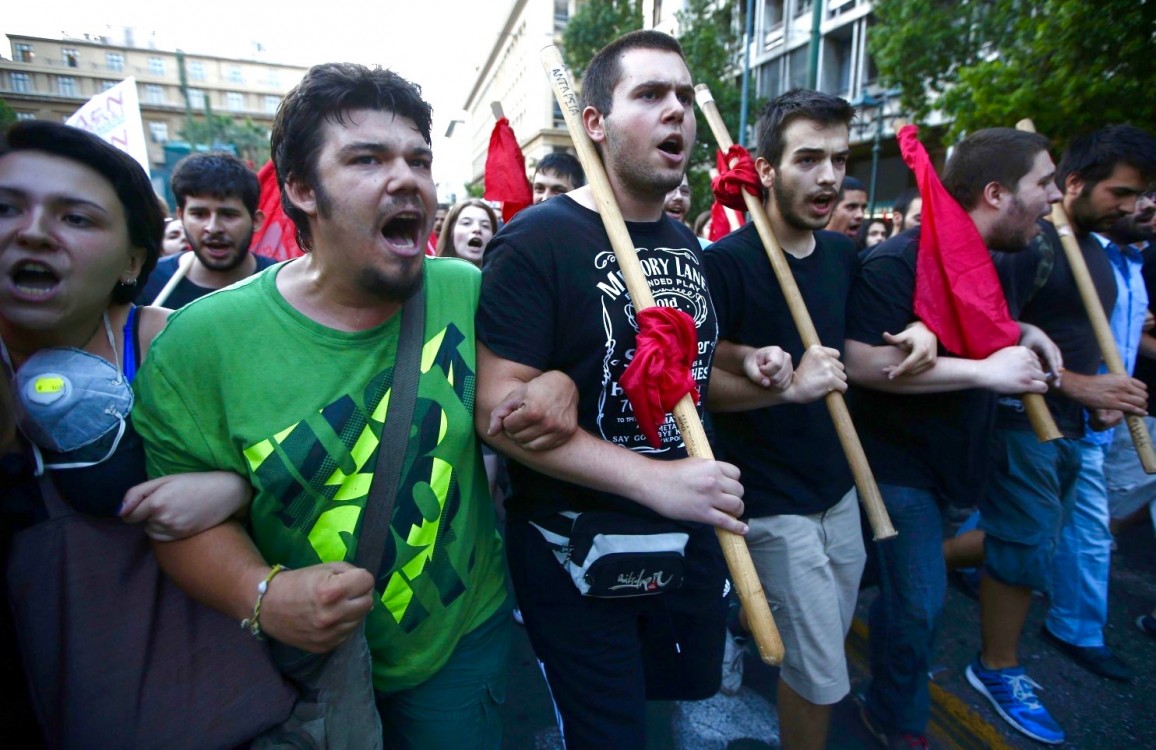
Before the Brexit shook the European Union to its core, Greece attempted to break new ground by attempting to leave the Eurozone in the summer of 2015. For this, it became the first developed nation to have its aid funding suspended through direct intervention by the IMF. While the much-vaunted "Grexit" referendum branded Syriza as "Greece's first anti-capitalist party," the facade soon fell apart; no sooner had the Greek people voted for a way out of the Eurozone than their government turned right back around and submitted to every term laid out by their debtors.
This came as no surprise, as a probable Grexit failed to cause as much of a stir in the international markets as Syriza's government had hoped. Prime Minister Alexis Tsipras's back-pedaling ensured his own political survival and led to a series of new austerity measures, which served to cut the 751 euro ($830) private sector minimum wage down to 586 euros ($648). The recent cutbacks can be attributed to a slew of new tax measures affecting income taxes, and new security fund contributions and solidarity contributions, officially making Greece the country with the highest deduction in wages in the entire Eurozone, according to the OECD. As a result, average wage earners will only see a minimum of 42.50 euros for every 100 euros they earn for their employer, bringing the minimum wage that employees can actually spend down to 346 euros ($382).
At the moment, the average Greek employee stands to make 3 euros an hour, which is about half the average hourly income of a U.S. citizen in the private sector. The recent measures came as a shock to most workers, who were initially promised by the Syriza government that their minimum monthly wages would be bumped up to 750 euros by 2016. These same measures also saw the increase of an income tax aimed specifically at self-employed individuals and freelancers, who will be forced to pay three-quarters of their 2015 income on this year's tax returns.
Combined with the recent increase in the Greek VAT (which rose to 24% in July), product prices are expected to go up as well, even as wages and income are slashed. Given recent developments, it comes as no surprise that most young Greek workers can barely afford to pay rent, never mind actually planning to start a family. One year after Syriza was given the reins of the country's administration, four in 10 Greeks find themselves struggling to pay their mortgage, rent or bills.
Despite past considerable tax hikes, the Syriza government still seems unable to cover for most of its fiscal shortcomings. One has to wonder: where does the money go? For the most part, the taxes go toward funding an unworkable, bloated public sector that seems to be growing by the day. Earlier this month, the government proclaimed that it intends to hire 1,000 new public transport drivers on permanent contractors, adding to the veritable army of local committees, public sector advisers and other new state bodies with the explicit purpose of "overseeing local authorities". All this, even as the country's public schools and hospitals exhibit a shocking rate of understaffing, with trained employees such as teachers, nurses and occasionally surgeons being hired on a temporary contract basis.
However, this trend is not only limited to the public sector. Greek employers have also decided to join the fray by exploiting their employees, offering them monthly work contracts that allow them to skip paying on insurance and introduce outrageous terms. Examples includes clothing retail stores that discriminate on the basis of age and nationality when it comes to hiring female employees; private kindergartens that discriminate against hiring married employees (on the off-chance of pregnancy or paternity leave); and extended "trial periods" that goad desperate interviewees into working for months without pay.
As a result of these developments, Greece is sliding back into an economic mire. Now, Syriza's latest concession to privatize public transit has led to a streak of workers' strikes that have paralyzed the commercial sectors of the capital. Previous attempts to monetize the country's assets failed to pay out as expected: Since the explosive 110 billion euro bailout in 2010, the country has barely raised over 3.5 billion euros while putting its land, resources – and recently even its own water supply – up for sale to the highest bidder.
The OECD's June forecast promises considerable growth for Greece in the second half of 2016, but the situation at ground zero shows an entirely different picture: A stunted private sector fueled almost entirely by employees driven to the edge of subsistence, and start-up companies with enterprising ambitions coming to a screeching halt as they struggle against destructive taxation and a public sector unable to support its own weight.
3 WAYS TO SHOW YOUR SUPPORT
- Log in to post comments














Comments
Barbara Baer replied on
Greece
Glad to see we have one place in Occupy.com to read a complex piece about Greece.